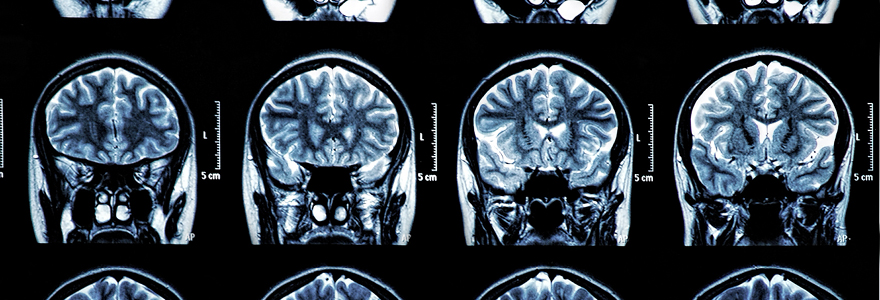Education
Contact Information

Lisa Baker-Spiller
Education Coordinator
519.663.3696
lisa.bakerspiller@lhsc.on.ca
Neurology Residency
Overview
The division of neurology at the Schulich School of Medicine & Dentistry strives to give state-of-the-art training in neurology by providing exposure to a broad range of patients, utilizing the latest diagnostic techniques and advanced treatment.
Trainees gain their experience in general internal medicine and the subspecialties, surgery, psychiatry, emergency medicine, intensive care medicine, and general and special neurology inpatients, consultations, outpatients, emergency neurology, neuropathology, neuroradiology and research.
The Neurology program provides five years of training in adult neurology in accordance with the requirements of the Royal College of Physicians and Surgeons of Canada. By providing consistently excellent clinical and scientific learning opportunities, the Department of Clinical Neurological Sciences has an internationally recognized tradition of training academic leaders and practitioners of neurology.
Dr. Seth Climans was featured in a resident spotlight in his PGY4 in 2017. Read his experience here.
Residency Downloads
Application
Application Process
Currently, the neurology program only accepts applicants through the Canadian Resident matching Service (CaRMS).
Selection Criteria
An elective experience in the program is not required but would help the candidate to learn more about the program and to meet faculty and other trainees.
We select candidates to interview on the basis of the personal letter, personal and written references and recommendations.
Programming
Seminars
Basic and clinical science seminars, tutorials and lectures cover a broad range of topics in annual, two or three-year cycles which encompass the knowledge base required for the discipline and include a course in evidence based medicine and ethics. Postgraduate trainees are given protected time to attend mandated weekly educational sessions. Quarterly observed clinical and oral examinations and regular written examinations form part of the evaluation process.
Research
Research can be done as an elective in PGY-4 for up to six months. Residents in PGY-2 are encouraged and helped to identify a research project in which they can participate during their PGY-3 and PGY-4 years with the goal of presenting an abstract at a meeting and/or writing a paper.
NOTE: Most postgraduate students, through the course of their training, participate in case reports, clinical or bench research such that in the preceding six years our postgraduate students have produced numerous papers and abstracts.
Facilities
- Children's Hospital of Western Ontario (CHWO) Clinical Teaching Unit
- London Health Sciences Centre- University Campus (LHSC-UC), Clinical Teaching Unit
- London Health Sciences Centre -University Campus (LHSC-US), Clinical Teaching Unit
- St. Joseph's Hospital (SJH) Elective Experience
Why CNS?
- Dedicated and effective Program Director and Residency Training Committee responsive to residents concerns
- Excellent clinical teaching covering all of the major subspecialty areas of neurology
- Industry leading faculty
- Well-organized didactic teaching schedule
Residency Life
Neurology residents complete their residency training over the course of five years. During this time they have the opportunity to learn from leaders in neurology research, education, and clinical care. Residents complete rounds in Multiple Sclerosis, neuroradiology, neuromuscular disease and disorders, stroke and cerebrovascular disease, movement disorders, neuro-critical care, quality of care, physical diagnosis, and epilepsy.
Residents have an academic half-day (8 a.m.-12:30 p.m.) blocked off every Tuesday morning. Grand Rounds lectures are presented during this time and are followed by teaching sessions. Teaching sessions encompass all neurological disorders, basic neurosciences review, evidence based neurology, neuropathology, ethics, communication skills, managerial skills, quality assurance, roles of collaborative health care professionals, professionalism, and health care advocacy.
Residents complete rotations at all three of London’s hospitals (University Hospital, St. Joseph’s Health Care London, and Victoria Hospital). Rotation areas include:
- the clinical teaching unit,
- the outpatient clinic,
- consult service,
- urgent neurology clinic,
- community neurology,
- EMG/ neuromuscular,
- epilepsy and electroencephalography (EEG),
- neurocritical care,
- stroke,
- paediatric neurology,
- neuropathology,
- neuroradiology,
- longitudinal clinic,
- research,
- neurosurgery for neurology residents,
- neuro-oncology,
- general internal medicine,
- emergency,
- infectious disease.
Contact
CNS Department Contact
Lisa Baker-Spiller
Education Co-ordinator
E-mail: lisa.bakerspiller@lhsc.on.ca
Phone: 519-663-3696
Fax:519-663-3982
Program Director, Division of Neurology
Anita Florendo-Cumbermack MBBS, MHPE, FRCPC
Phone: 519-663-3129
London Health Sciences Centre
University Hospital
339 Windemere Road
London Ontario Canada
N6A 5A5









